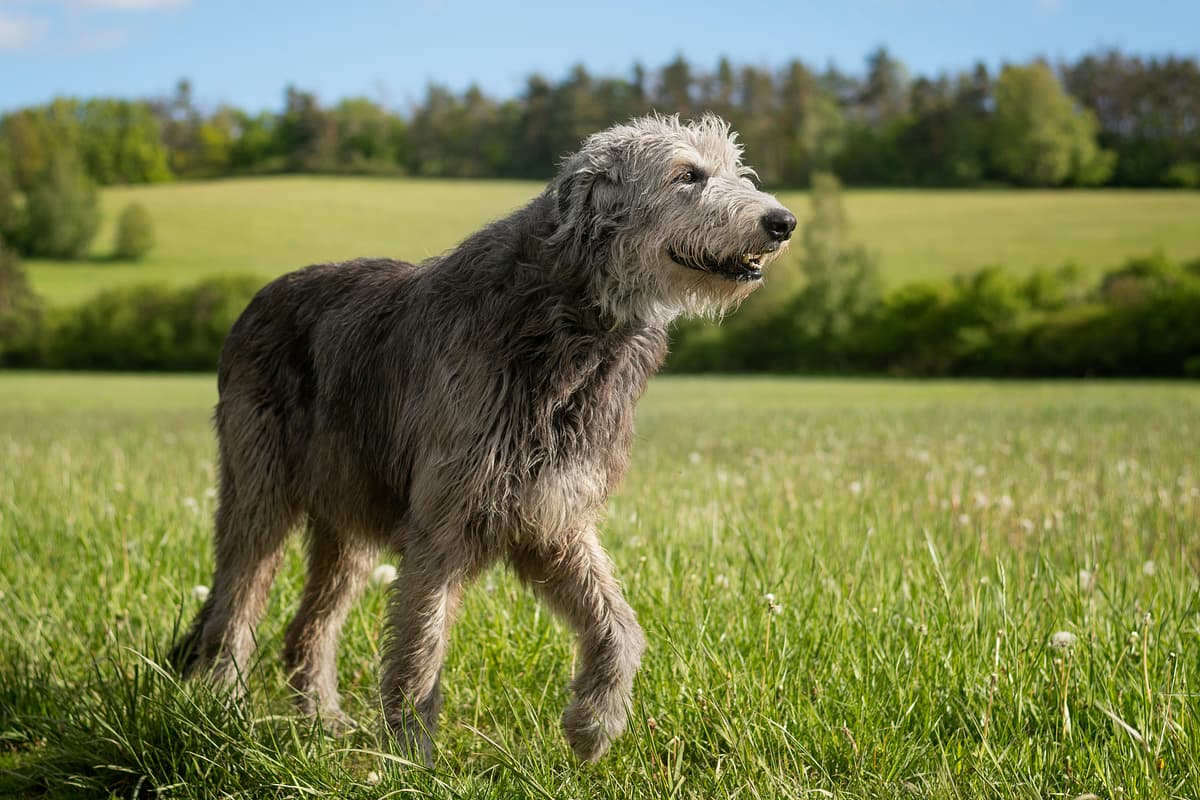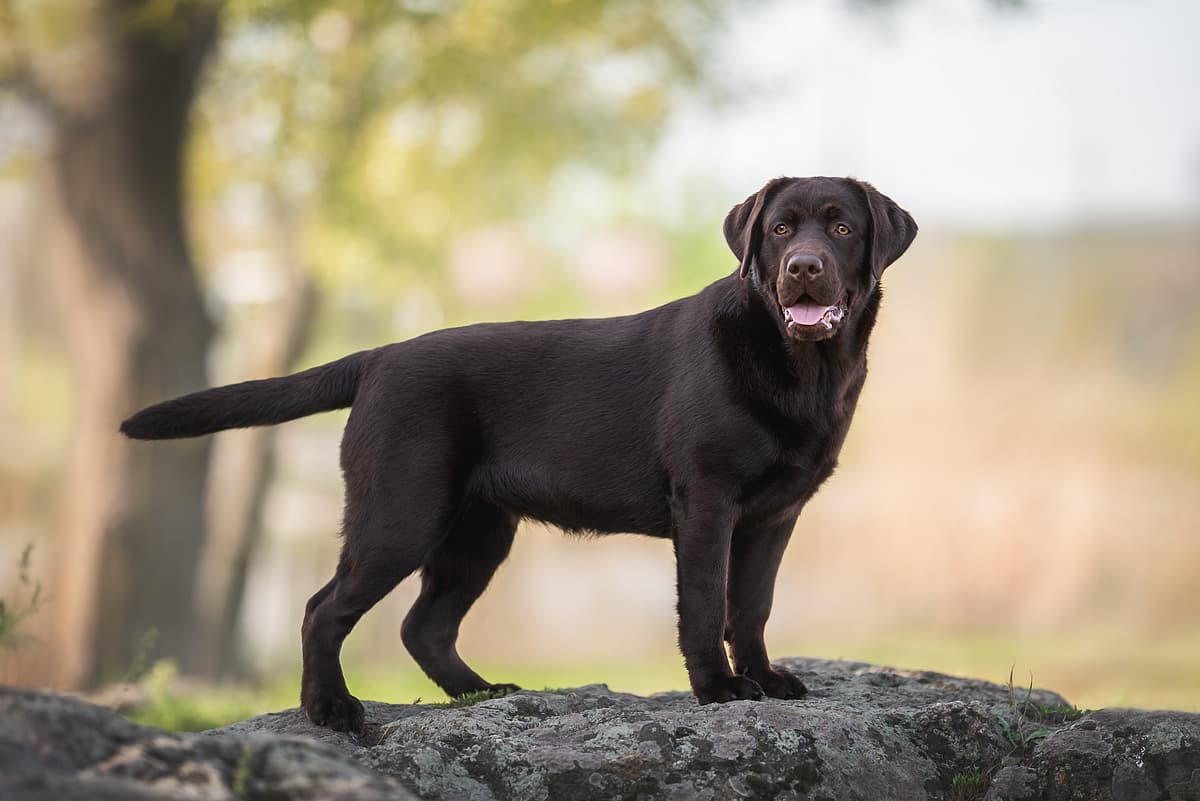Irish Wolfhound vs Labrador Retriever
Discover the differences between Irish Wolfhound and Labrador Retriever to make the best choice for your situation.
Try different breeds

Irish Wolfhound
Gentle, towering, and deeply loyal, this breed brings calm companionship to any home. Known for their patience and affectionate nature, they thrive as loving family members.

Labrador Retriever
Eager, friendly, and intelligent, this breed loves being part of an active family. Their gentle nature and loyalty make them outstanding companions for all ages.
Quick comparison
Large
54–70 kg
Rough, wiry
6–8 years
48–61 kg
Moderately active
Large
29–36 kg
Short double coat, water-resistant
10–12 years
25–32 kg
High energy
Personality & behavior
Compare the personality traits and behavioral characteristics of both breeds.
Irish Wolfhound
Gentle and friendly with people and dogs
Quick learner, responds well to training
Calm, prefers relaxed activity and walks
Enjoys play but not overly boisterous
Adjusts well to calm, spacious environments
Labrador Retriever
Warm and sociable with people and animals
Quick learner, responds well to training
High stamina, enjoys active pursuits daily
Loves games and interactive activities
Adjusts easily to new situations and environments
Care needs
Exercise, grooming, and daily care requirements
Irish Wolfhound
Hip dysplasia, heart disease
Labrador Retriever
Hip dysplasia, elbow dysplasia
Suitability
How well each breed fits different living situations and families
Irish Wolfhound
Challenging for beginners
Their size and needs require experienced, confident handling and socialization
Not recommended
Their large size and exercise needs make apartments impractical
Somewhat suitable
They enjoy moderate exercise but are not overly energetic
Generally gentle
Usually calm and tolerant but may accidentally knock over small children
Usually compatible
Tend to get along with other pets if socialized early
Poor fit
Dislike being alone and may develop separation anxiety if left too long
Labrador Retriever
Great choice
Patient and eager to please, Labradors are manageable for most first-time owners.
Not ideal
Labradors need space and exercise, so apartments can limit their activity needs.
Perfect fit
High energy and stamina make them excellent for active individuals or families.
Highly suitable
Gentle temperament and playful nature make them safe and loving with young children.
Very friendly
Generally sociable and get along well with other dogs and pets.
Prone to anxiety
Extended alone time can lead to boredom and destructive behaviors in this breed.
Breed strengths
What each breed excels at and their best qualities
Irish Wolfhound
- Gentle with children and family members
- Calm and even-tempered in the home
- Minimal aggression toward people or animals
- Loyal and devoted to owners
- Quiet, rarely barks excessively
Labrador Retriever
- Friendly and sociable with people and dogs
- Highly trainable and eager to please
- Excellent with children and families
- Strong retrieving and swimming abilities
- Generally adaptable to various living situations
Challenges & considerations
Potential challenges and considerations for each breed
Irish Wolfhound
- Short average lifespan of six to eight years
- Prone to heart and bone health issues
- Needs ample space due to large size
- High food and veterinary care costs
- Susceptible to joint and mobility problems
Labrador Retriever
- Prone to obesity without portion control
- Can become destructive if under-exercised
- Heavy seasonal shedding requires regular grooming
- May develop hip or elbow dysplasia
- Needs significant daily physical activity
Ready to choose your perfect breed?
Learn more about each breed or compare other breeds to find the perfect match for your lifestyle.
Discover more helpful tools
Make use of our other free tools to get the most out of your pet experience
